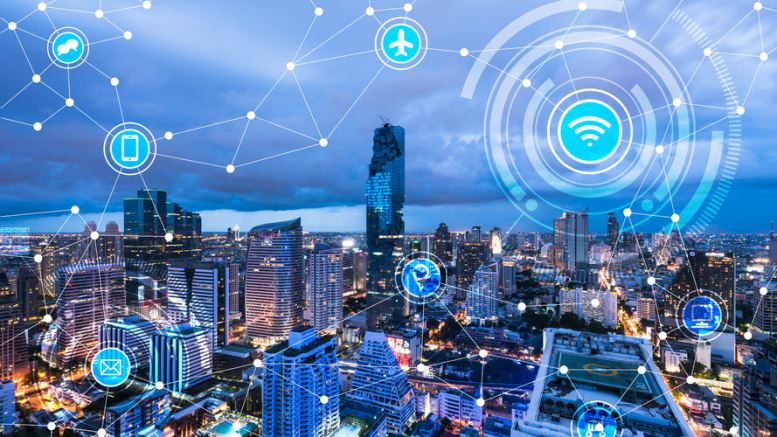By Michael Hunter, Head of Business Marketing Strategy and Planning, and Sanjaya Shrestha, Director of Future Payments at Barclaycard
There’s been a lot of hype about the Internet of Things (IoT) – the revolution that will one day see our fridges ordering food, our appliances scheduling servicing and our cars driving and refuelling themselves. Whilst not mainstream today, make no mistake: IoT is here and is set to change the world as we know it – not only is it going to impact our personal lives, it will also change the way many businesses are run.
Whether it’s Amazon’s Dash Buttons or LG’s promise to include Wi-Fi in all its premium appliances, from refrigerators to ceiling fans, companies who have an eye on the future are already investing in IoT capabilities.
Many businesses already use connected smart machines to increase efficiency. Modern jet engines, for example, contain thousands of sensors that constantly gather real-time data on their performance and transmit it to ground stations. This enables airlines to much more precisely schedule maintenance to avoid costly repairs or unnecessary time out of service, or arrange for a servicing team to be routed to meet an aircraft even before it lands if in-flight data has raised any concerns.
The concept of machines sensing and gathering data, sending that data over networks to be processed, analysed and acted upon, without the need for any human intervention, is extremely powerful. Accordingly, advances in diagnostic and servicing models, powered by IoT, will soon be common across households, vehicles and businesses.
With an ability to sense, analyse and act upon information in efficient, cost effective ways, IoT will start shaping our work and home lives. In some ways, it already is: in-home smart meters are already gaining popularity, where variables such as temperature are regularly monitored and automatically adjusted accordingly, saving time, money and effort in managing energy costs. IoT technology will help to monitor and maintain health, improve efficiency and enable transactions anywhere, anytime. Many of us are already on that path, having an Amazon’s Echo Digital Assistant, wearing an Apple Watch or Fitbit, or watching a recommended program on an internet-connected TV.
It’s the retail sector that we believe has the potential for significant benefit from transformations in this space. IoT technology will enable merchants to improve operational and marketing efficiencies, sell more higher-margin items, and engage with shoppers in highly targeted ways. Progressive retailers will use IoT to improve margins and provide connected shopping experiences.
Whether by enabling buying and selling through voice interfaces in-home or in-vehicle, dynamically marketing to in-store customers in real time or offering true omni-channel buying experiences through digital or face to face channels, it presents retailers with the opportunity to reach more valuable customers to drive top line growth.
IoT can also drive cost reductions in the sector through efficiencies such as measuring footfall to optimise in-store layout or monitoring mission-critical equipment, such as freezers, air-conditioning or ovens – whilst in-store smart sensors can automatically detect inventory levels and reorder directly from the factory or warehouse, with payment settled without any administrative burden.
Similarly, in-store sensor data can be combined with external data to predict demand to ensure the right products are available at the right time. All of this can and will happen in the background, without human intervention, providing competitive advantages to those who can capitalise on the technology.
Retailers can use IoT to move towards checkout-free stores or sections in stores—increasing sales by enabling customers to shop without having to queue. Whilst Amazon Go might only be a one-store trial at the moment, the concept of customers picking up items and walking out the store – ‘shopping without checkout’ – is a very-near reality. RFID tags, connected shopping baskets, and mobile phone apps can all be brought together to make it a reality; walking in, shopping and walking out.
All the while, Bluetooth technology and beacons can help a business recognise its customers as they walk past a shop, around a shop, or near a shop, allowing them to tailor the shopping experience or entice them in with relevant and timely offers.
IoT is now at a tipping point and clear use cases and benefits are emerging for those businesses who can harness the potential it offers. Take a serious look at how your business can test some IoT use cases and start understanding where it can add value. Do it before your competitors do!


Be the first to comment on "How the IoT will transform the business world we know"